Associations thrive when their member companies are strong, growing, and prospering. But in some industries, employers have trouble cultivating and keeping talented professionals. They need help holding onto rising stars and keeping their management and leadership pipelines filled—a problem associations can also relate to.
When your association offers management training programs, you help member companies educate the next generation of leaders. You also become part of the lives of these talented professionals, who may one day enter your leadership pipeline too.
Why the need for management training programs is more critical now than ever
Informal training on the job is not as prevalent in remote and hybrid workplaces. People don’t have the same opportunities to share their tacit knowledge—skills, ideas, and experiences they possess but can’t easily share or express. This knowledge isn’t usually captured by the organization in any formal way.
Employees miss out on informal learning opportunities that used to occur in the office. They no longer overhear conversations or watch interactions. They don’t randomly run into people from other departments or job levels. Managers find it more difficult to connect remote or hybrid employees with learning opportunities. It isn’t always obvious what employees need or want to learn to advance their career.
76% of employees say they would stay at their jobs longer if their employer supported their learning and development. Yet, many employers don’t focus enough on reskilling and upskilling employees.
Companies sabotage their own leadership pipelines
For decades, retail executives started in the same place: management training programs run by department stores and big-box chains. In these programs, participants spent a year to 18 months rotating through different positions in store operations, buying, and product development. An industry expert said, “Everyone knows that you cherry-pick your best talent from department store retail leadership development programs.”
But now, Gap, Diesel, and the parent of North Face and Vans are operating without a permanent CEO. Other brands are having trouble keeping their C-suite full.
Why? One reason is because these brands have cut back or eliminated retail management training programs. This sad state of affairs is a sign of the short-term thinking pervasive in many C-suites. Mergers and acquisitions accelerated the habit of overly focusing on the next quarterly report. Companies no longer invest in their future talent.
It didn’t help when new industry players enticed rising retail talent away from traditional brands. But which came first, the demise of training or the demise of the retail business model? Who knows, but the lack of a leadership development pipeline has come back to haunt these brands.
“It does feel like the lack of investment of the last 20 years is catching up,” said Ron Thurston, former vice president of stores at the luxury fashion brand Intermix and the author of “Retail Pride.”
Another expert, Kathy Gersch, chief commercial officer at Kotter International, said, “It’s going to be very challenging for them as an industry if they can’t rebuild that and attract some of that talent.”
Retail isn’t the only sector experiencing this problem. Companies in the hospital and healthcare, manufacturing, and energy industries are struggling too. I’m sure there are others. Are you seeing an opportunity for associations here?

Skills-based training programs help build talent pipelines
Eliminating management training programs as a cost-cutting measure is a self-inflicted wound that never quite heals. Smart companies are teaching their employees the competencies needed to rise in the organization.
HSBC Bank offers a skills-based development program for internal candidates who want to pursue a career in wealth services. For three to nine months, these employees spend 20% of their time developing the skills needed for relationship manager roles in the bank’s wealth and private banking services businesses. “This pioneering program is helping us build a strategic talent pipeline for a very important part of our business,” said Laura Powell, HSBC’s global head of HR for wealth and personal banking and global functions.
Your member companies can do this on their own, but it’s likely many of them have similar positions with similar career paths and required competencies. Are you seeing an opportunity for associations here too?
How associations can help member companies fill their management and leadership pipelines
The National Retail Federation (NRF) Foundation is doing its part by offering programs to help recruit and train high school and college students for retail careers. Their RISE Up training and credentialing program provides foundational employability skills to help people land jobs and get promoted in retail. They developed the curriculum in collaboration with more than twenty retailers and work with more than 3,000 training partners across the country. More than 500,000 people have earned RISE Up credentials.
Companies find it difficult to scale up training programs when employees are at different skill and knowledge levels. But associations are well positioned to take on this mission. Partner with industry employers, like NRF did in developing its introductory programs.
Design certificate programs with digital badges for different management and career tracks or pathways. Sell seats in these programs either individually or as part of a corporate package.
By offering management training programs, you can help companies train their future leaders—the women and men who will one day help lead your association and industry.






